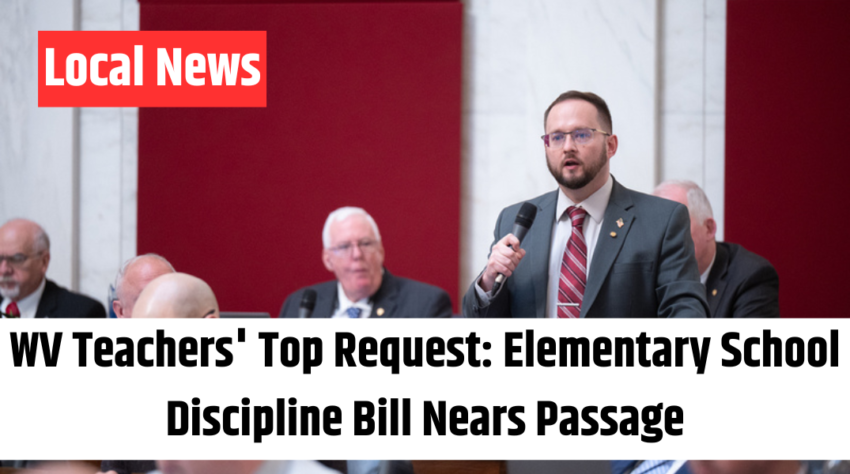West Virginia lawmakers have advanced a bill aimed at strengthening elementary school teachers’ ability to remove disruptive or violent students from their classrooms. The measure, which passed the House of Delegates with overwhelming support, now heads to Gov. Patrick Morrisey for final approval.
Educators across the state have long advocated for stronger disciplinary measures, citing an increase in behavioral issues among young students that disrupt learning environments.
“We need to ensure that all students have a chance to learn without constant interruptions,” said Del. Elliott Pritt, R-Fayette, a public school teacher. “It’s time to stand up for the students who come to school ready to learn.”
The Senate unanimously approved the legislation, known as Senate Bill 199, and the House followed with a 94-3 vote. The bill establishes guidelines for when and how teachers in kindergarten through sixth grade can remove students who exhibit violent or threatening behavior, intimidate others, or severely disrupt learning. The House also expanded the bill’s scope to include pre-K classrooms within public schools.
House Education Chair Del. Joe Ellington, R-Mercer, emphasized that the legislation is designed to support not only teachers but also the entire classroom environment.
Also Read – 3-Day Forecast: West Virginia Sees Cool Monday, Warmer Midweek
“This isn’t just about discipline—it’s about ensuring that all students can learn in a safe and structured setting,” Ellington said. “It helps teachers, students, and parents by making classrooms more effective learning spaces.”
Additionally, the bill requires school counselors and social workers to assess the root causes of students’ behavioral issues. Many educators have linked classroom disruptions to larger societal challenges, including the state’s substance abuse crisis and the increasing number of children in foster care.
A similar measure stalled at the last minute in last year’s legislative session. However, bill sponsor Sen. Amy Grady, R-Mason, said lawmakers worked over the past year to refine the legislation, ensuring it balances discipline with support for at-risk students.
Opponents of the bill raised concerns about whether schools have enough qualified counselors to evaluate students’ needs properly. Del. Sean Hornbuckle, D-Cabell, voted against the measure, arguing that the current version lacks critical safeguards.
“There are still serious gaps in this bill, and I can’t support it in its current form,” Hornbuckle said.
While Grady acknowledged that only about 1% of students exhibit violent behavior, she emphasized the importance of addressing disruptions while also providing troubled students with opportunities for improvement.
“This isn’t about pushing kids out of school,” she said. “We want to make sure they have the resources to change their behavior before removal becomes necessary. These are young children who deserve second chances.”
Despite some concerns, supporters of the bill believe it strikes a necessary balance between maintaining classroom order and ensuring struggling students receive appropriate interventions. If signed into law, the legislation will give teachers more authority to manage disruptive behavior while reinforcing support systems for students in need.
